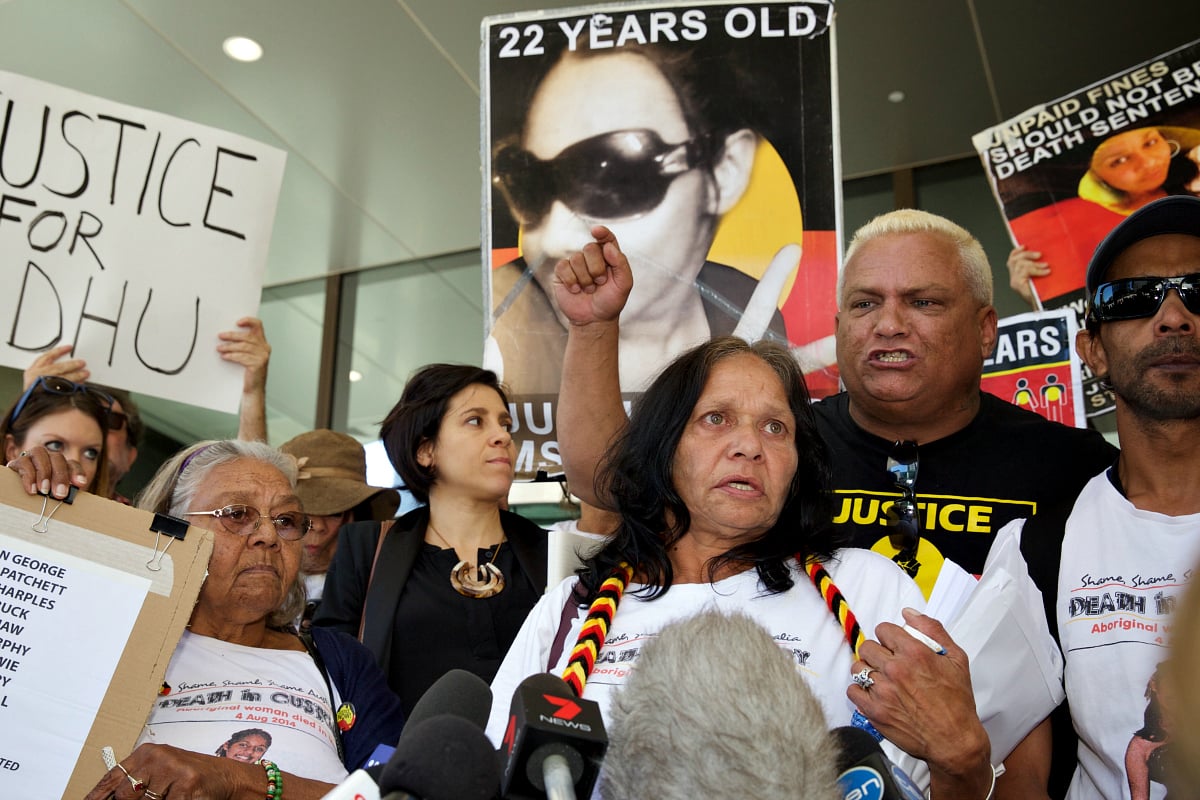
Warning: the following contains details that may be distressing.
Ms Dhu was 22 years old when she was dragged, handcuffed, from a cell at South Hedland police station in Western Australia on August 4, 2014. The Yamatji woman was limp, aside from small movements of her head and hands.
Two officers loaded her into the back of a police van, and drove to a nearby hospital. It was her third hospital visit in as many days, due to pain caused by previously broken ribs. It was also her last.
Ms Dhu, whose full name is withheld for cultural reasons, was pronounced dead by hospital doctors that afternoon.
Aboriginal and Torres Strait Islander readers are advised that the following may contain images and voices of people who have died. Post continues after video.
In 2016, the Western Australian Coroner concluded that Ms Dhu had died of septicaemia and pneumonia.
The inquest heard that a police officer at South Hedland lockup thought Ms Dhu was "faking it", when she complained of feeling unwell.
"In her final hours she was unable to have the comfort of the presence of her loved ones, and was in the care of a number of police officers who disregarded her welfare and her right to humane and dignified treatment," the coroner concluded.
